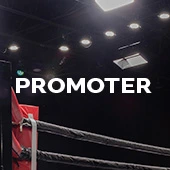In a little over a fortnight, TKO will make their first major play in the world of boxing and it’s a gargantuan one: Saul “Canelo” Alvarez vs. Terence Crawford, September 13, Las Vegas. It will be broadcast by Netflix, and, if you can ignore the approach of the November Jake Paul-Gervonta Davis “exhibition,” it’s almost certain to be the most-watched boxing event of the year.
They’re making changes, too. The undercard, which features Christian Mbilli vs. Lester Martinez at super middleweight and Serhii Bohachuk vs. Brandon Adams at junior middle, would ordinarily be 12-round bouts decorated by sanctioning body baubles. Not so this time. Only the main event can be over 12 rounds and only the main event can be for titles. Mbilli’s interim WBC strap, for example, is not welcome.
On the surface, particularly for fans who have grown exhausted from trying to follow the lineage of far too many alphabet belts, it would appear a positive move. For those with at least one eye on the bigger picture – attempting to update the Professional Boxing Safety Act is perhaps the biggest nod towards a desire to duplicate the stranglehold they enjoyed over the MMA market with the creation of the UFC – there is cause for concern. Throw in their relationship with Turki Alalshikh and his bottomless pockets alongside bombastic brand figurehead Dana White, and established boxing promotional groups might be watching developments through their fingers.
Matchroom CEO Frank Smith is not one of them.
“In the sport of boxing, there will always be that competition, but they won’t do what they did with UFC because they’re too late to it,” Smith told BoxingScene, pointing out that boxing, unlike MMA, is a long-established sport.
“I enjoy new people coming into the sport, I think it’s beneficial to the sport. But I don’t think anyone new coming in will get a stranglehold on the market.
“The market has changed and it’s always evolving. Who would have said 10 years ago that HBO and Showtime wouldn’t be involved in boxing? People talk about Sky Sports now in the UK and I don’t know what their intention is long term, but who would have thought they’d be in the position they’re in now [without a boxing deal in place]? The market changes all the time, new entrants come in.
“Look at Top Rank. They’re without a broadcaster. There is always something new, it’s been that way for 50 years. Whether it was Al Haymon who invested $600m eight or nine years ago – and that hasn’t really worked, let’s be honest. Whether it was Top Rank with their $90 or 100m-a-year deal they had for eight years. Did that work? Well, they didn’t get an extension.”
Smith, who has negotiated some of the biggest deals in the sport in recent years, accepts that the sport must continue to evolve. After all, every sport that is thriving has made tweaks, and in some cases complete overhauls, to established formats to make them as appealing as possible to the widespread public.
“I think boxing needs changes,” he said. “I look at it and I’m not a purist boxing fan and I think for the younger audience, people want fast-paced events now. They don’t want to sit there and watch 12 rounds, in my opinion, so I don’t disagree [with making undercard bouts shorter]. I think there’s issues with [sanctioning] bodies, there’s a lot that can change, but I don’t think [TKO] can come in and do what they did in MMA.
“I do think they’re going to come in and create a tremendous brand – that’s what they do. Look what they did with Power Slap in two years, and whether you like that or not, it’s the creation and then building of brands that they’re great at.”
Smith insists he’s happy with the progress that Matchroom are making. Though the finances and business plans of DAZN have constantly come under scrutiny since the promotional giants joined forces with the streaming network in 2018, Smith is adamant the relationship is flourishing.
“It's interesting times in the sport and I’m very confident in our position, especially with DAZN. We made a big jump and people questioned it, but I feel like it’s paid off. It’s undoubtedly the home of boxing, globally.”
Queensberry have recently moved their broadcasting duties to DAZN and Golden Boy, though their future with the network is for now uncertain, and is another of several promotional groups on board. For Matchroom, the move to DAZN came after a hugely successful spell as the exclusive UK promoter for Sky Sports. The British broadcasters still have a huge reach in the UK market but Smith ruled out a return to the network.
“We got a deal with DAZN and we’re in a great place with them,” Smith said. “I feel we made a jump – we left Sky, it wasn’t like Sky didn’t want us anymore – because we believed in the opportunity. And we’re a business that has been going for over 40 years now. For us, it was about making the move for the future of our business, and we believed in the route that they were going. Of course it was a risk, but it paid off, and everyone is now joining us.
“In terms of Sky, there has been no thoughts about making the move [back]. We have a great relationship with them – we’ve just extended our darts deal – but the focus very much is, with the investment DAZN are making in boxing, to stick with them and extend the deal with them. You have to be with a partner that has a heavy investment and interest in the sport and, at times, it felt like Sky didn’t have that. When we were with Sky, boxing didn’t have the push that it had when we left. With DAZN, even with the football rights in independent territories, boxing is a focus for their business and that’s what we want. Our job is to push boxing to the masses and make it as big as possible; when you’re aligned with a partner who agrees with that, on a global scale, that is our focus.”


